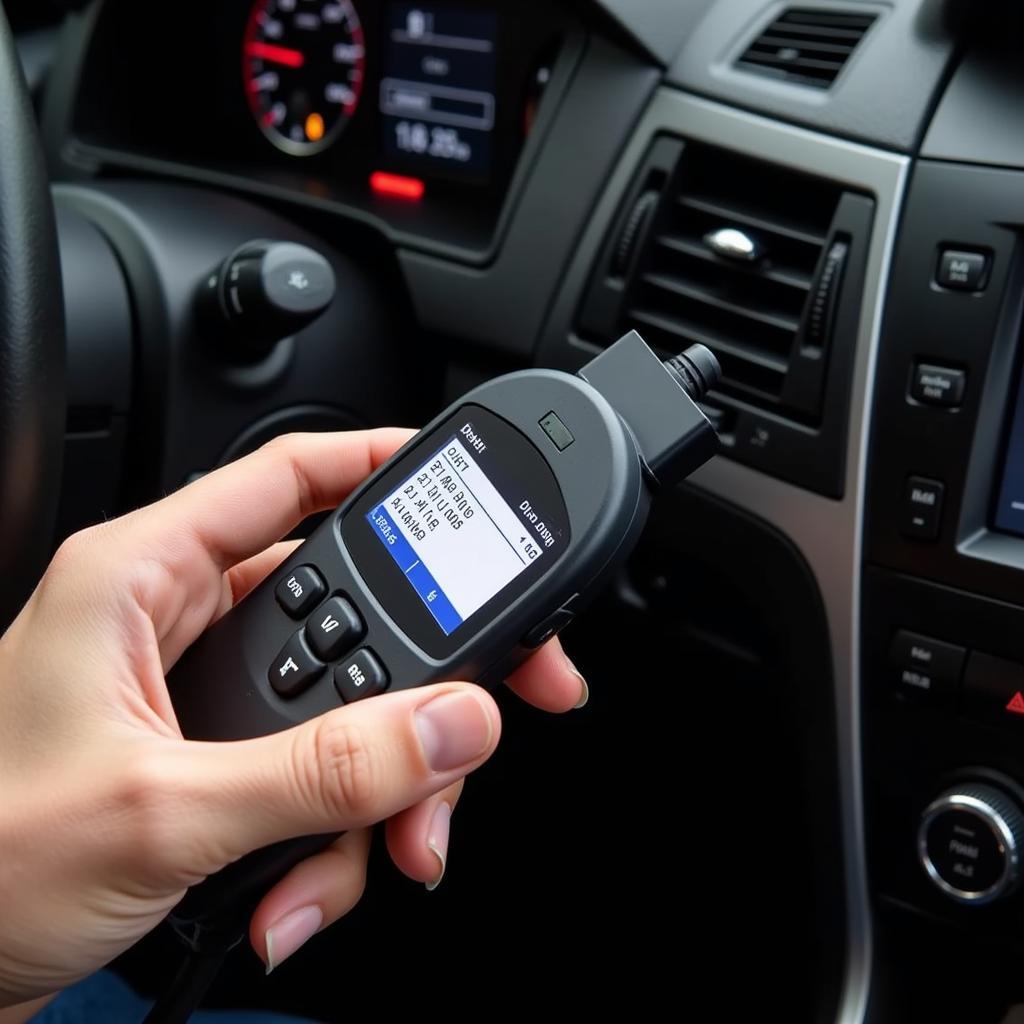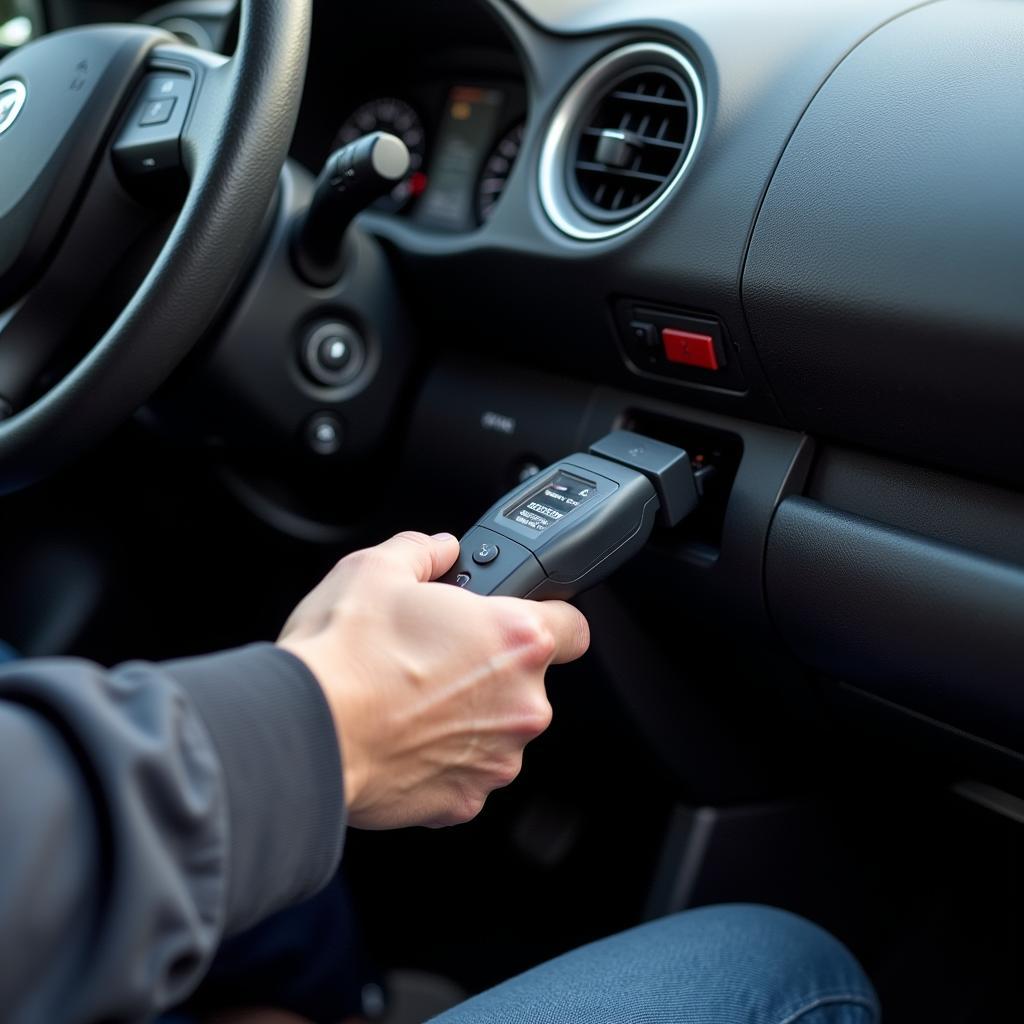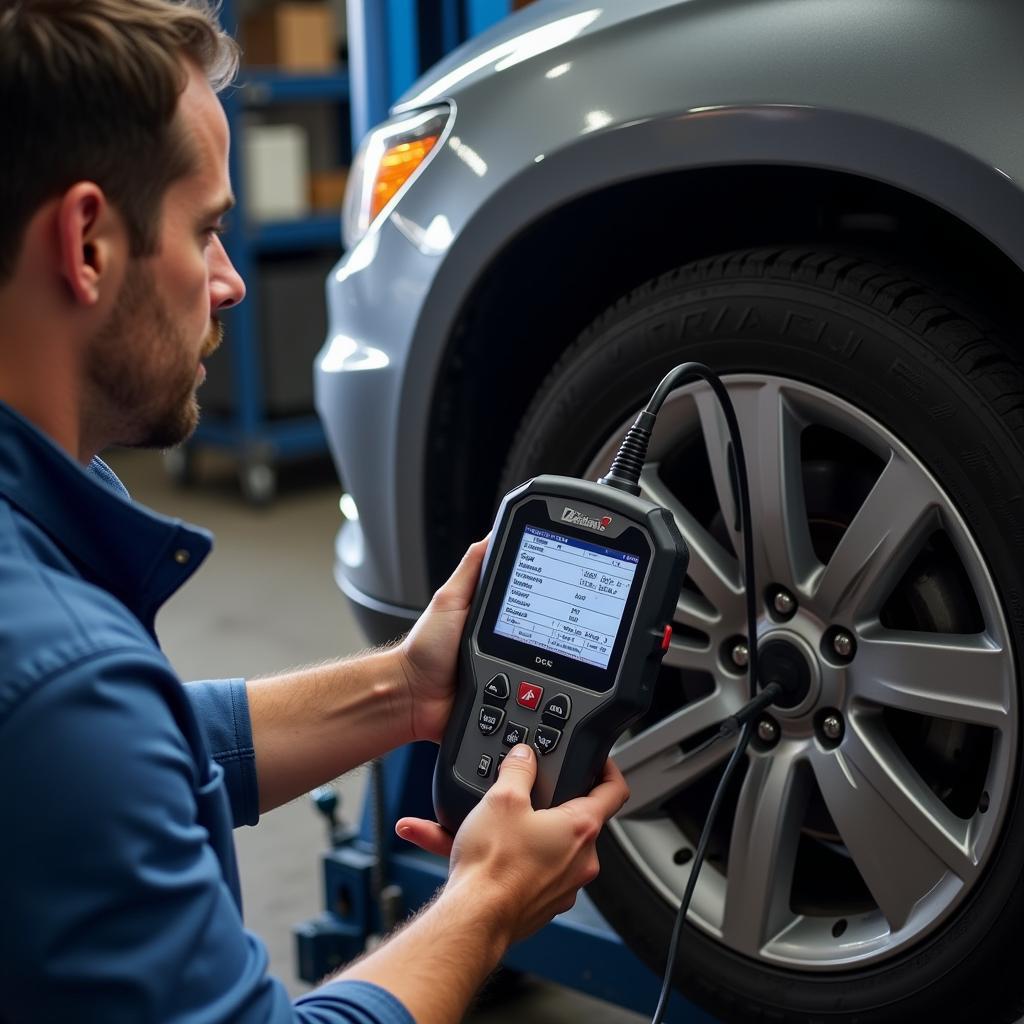Diy Diagnostic Tools are revolutionizing how car owners and technicians approach vehicle troubleshooting. These tools provide affordable and accessible ways to identify and sometimes even fix car problems, eliminating the need for expensive trips to the mechanic for minor issues. From simple code readers to advanced scan tools, the market offers a range of options to suit different needs and budgets.
Similar to smartphone car diagnostic tool, the evolution of technology has made powerful diagnostic capabilities available right in your pocket. But before you dive into the world of DIY car diagnostics, it’s important to understand the landscape, the benefits, and the potential pitfalls.
Understanding DIY Diagnostic Tools: A Comprehensive Guide
DIY diagnostic tools range from basic code readers, which retrieve Diagnostic Trouble Codes (DTCs), to more sophisticated scan tools that provide real-time data, perform bidirectional tests, and even program certain modules. Understanding the different types of tools available is crucial for choosing the right one for your needs.
What are the key benefits of using DIY diagnostic tools? For car owners, these tools offer greater control over vehicle maintenance, allowing them to quickly diagnose minor issues and avoid unnecessary trips to the mechanic. For technicians, they provide efficient and cost-effective ways to perform preliminary diagnostics and streamline the repair process.
 DIY Diagnostic Tools – Code Reader in Use
DIY Diagnostic Tools – Code Reader in Use
Choosing the Right DIY Diagnostic Tool: Features and Functionality
Selecting the appropriate diagnostic tool depends on your technical skills and the complexity of the tasks you intend to perform. Basic code readers are suitable for retrieving DTCs and clearing check engine lights, while more advanced scan tools are necessary for in-depth analysis and advanced functionalities.
How much should you expect to spend on a DIY diagnostic tool? The price range varies greatly, from affordable code readers under $50 to professional-grade scan tools that can cost several hundred dollars. Consider your budget and the features you require before making a purchase. Factors such as vehicle compatibility, software updates, and data logging capabilities should also influence your decision.
Similar to adding diagnostic tools, integrating these tools into your workflow can drastically improve your efficiency. One important aspect to consider is the tool’s user interface. A user-friendly interface, intuitive menus, and clear data presentation enhance the overall user experience and simplify the diagnostic process.
Troubleshooting with DIY Diagnostic Tools: Practical Tips and Best Practices
Once you have chosen the right DIY diagnostic tool, it’s essential to know how to use it effectively. Start by familiarizing yourself with the tool’s features and functions. Always consult the vehicle’s service manual for specific diagnostic procedures and wiring diagrams.
What are some common mistakes to avoid when using DIY diagnostic tools? Misinterpreting DTCs, failing to consider underlying causes, and attempting repairs beyond your skill level are common pitfalls to avoid. Remember that diagnostic tools are aids, not replacements for proper mechanical knowledge and experience.
DIY Diagnostic Tools: Future Trends and Advancements
The field of automotive diagnostics is constantly evolving, with new technologies and innovations emerging regularly. Cloud-based diagnostics, wireless connectivity, and artificial intelligence are transforming the way vehicles are diagnosed and repaired.
How are DIY diagnostic tools keeping up with these advancements? Many manufacturers are incorporating these technologies into their products, offering features such as remote diagnostics, over-the-air updates, and predictive maintenance capabilities.
For those looking to explore free options available, consider resources like internet diagnostic tools free. These tools can provide valuable insights and often complement paid solutions.
 DIY Diagnostic Tools – Future Trends in Automotive Diagnostics
DIY Diagnostic Tools – Future Trends in Automotive Diagnostics
“DIY diagnostic tools are empowering car owners like never before,” says John Smith, Senior Automotive Engineer at Acme Automotive Solutions. “They provide a cost-effective way to understand and address vehicle issues, fostering a sense of ownership and control.”
Similar to a toyota diagnostic tool set, having specialized tools for specific makes and models can further enhance your diagnostic capabilities. However, it’s crucial to invest in reputable brands and ensure compatibility with your vehicle’s systems.
Homemade Automotive Diagnostic Tools: A Word of Caution
While some enthusiasts explore creating homemade automotive diagnostic tools, this approach requires advanced technical expertise and should be approached with caution. Improperly designed or constructed tools can potentially damage the vehicle’s electrical system. “Safety should always be the top priority when working with automotive electronics,” adds Jane Doe, Lead Technician at AutoTech Solutions. “Using professionally manufactured diagnostic tools ensures reliability and minimizes risks.”
Conclusion: DIY Diagnostic Tools – A Valuable Asset for Car Owners and Technicians
DIY diagnostic tools offer valuable resources for both car owners and technicians. By understanding the different types of tools available, choosing the right one for your needs, and following best practices, you can empower yourself to diagnose and address many common car problems effectively.
We encourage you to connect with us at ScanToolUS for personalized guidance and support. Contact us at +1 (641) 206-8880 or visit our office at 1615 S Laramie Ave, Cicero, IL 60804, USA.


